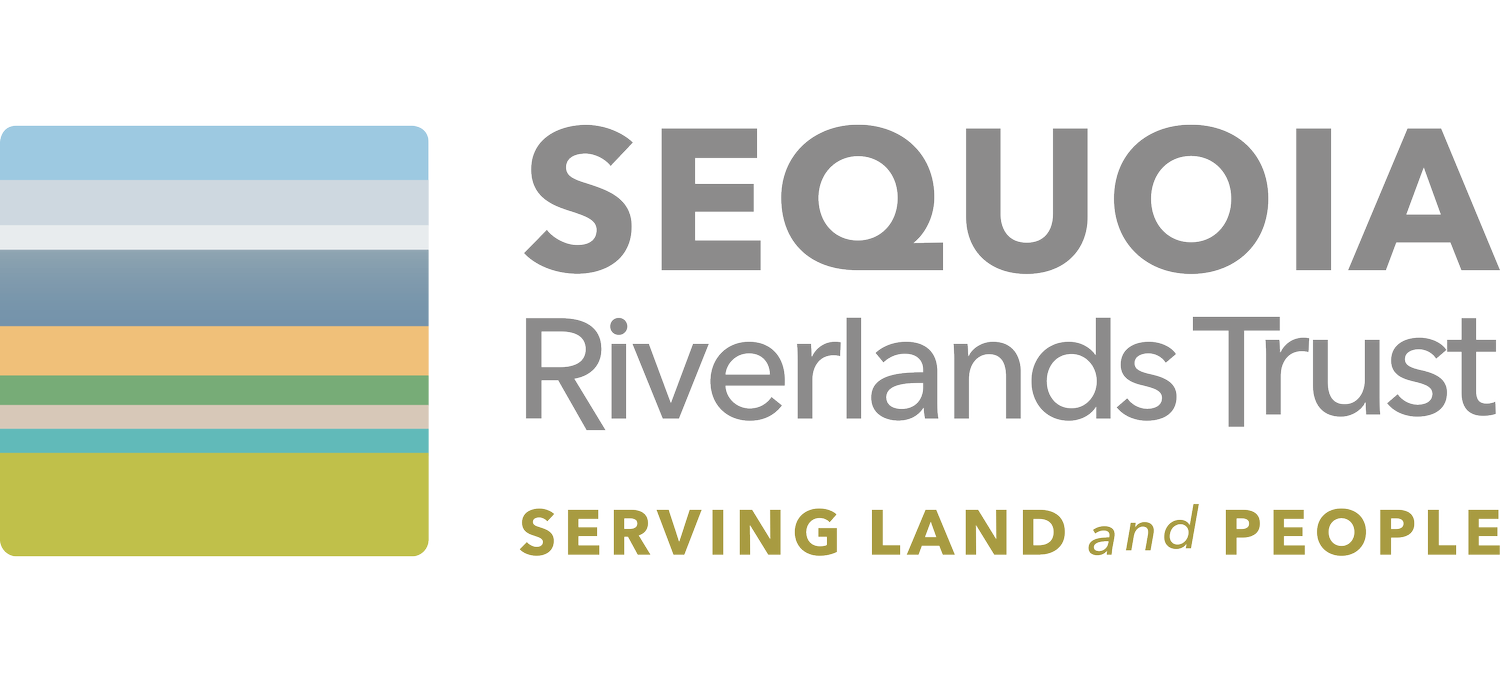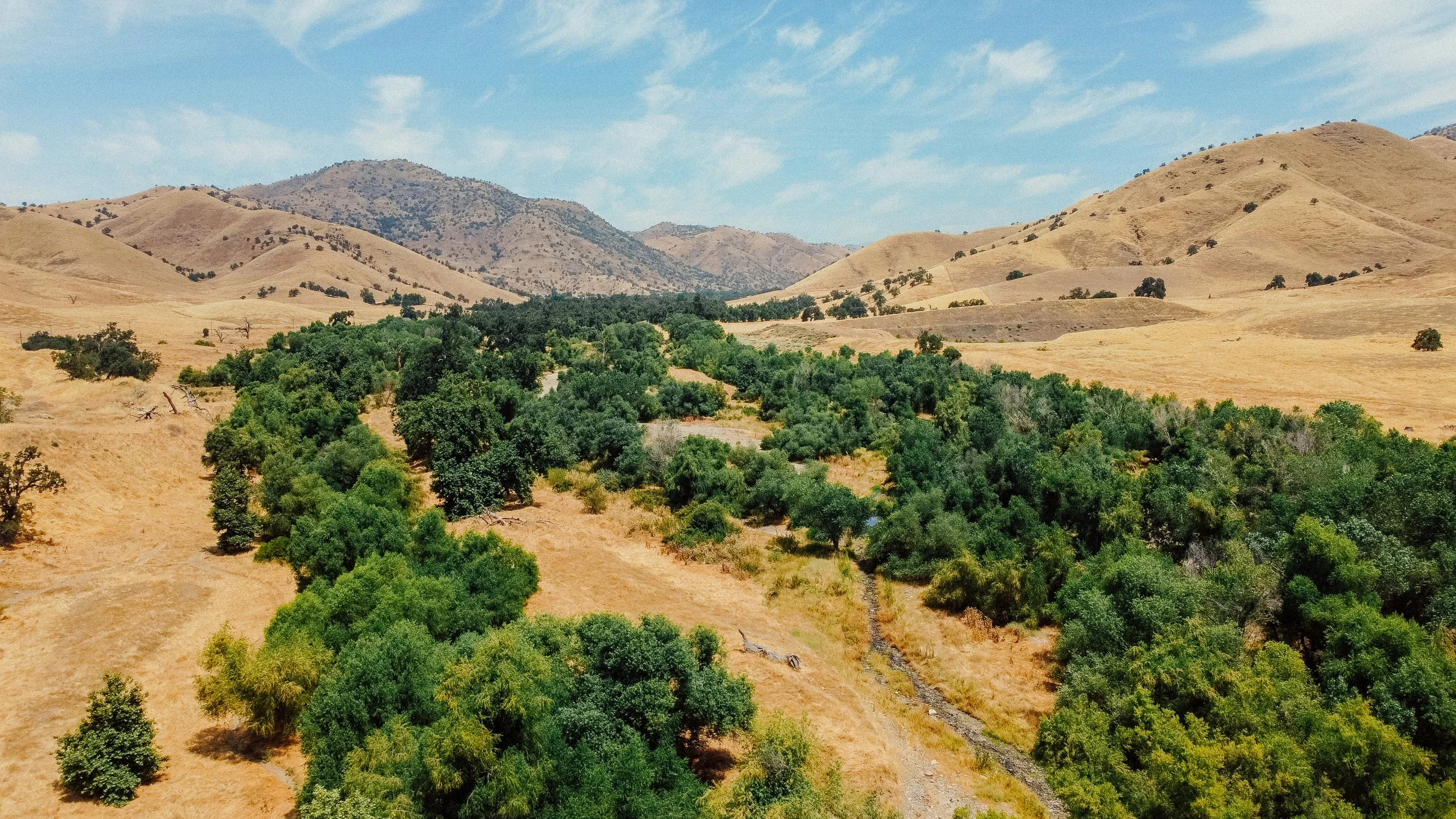Planning for People, Land, and the Future | The Regional Restoration Planning & Partnership (R2P2) Initiative
Planning for People, Land, and the Future
Learn how Sequoia Riverlands Trust and regional partners are developing a bold, community-driven plan to restore ecosystems, support agriculture, and create economic opportunity in the Central Valley.
A Changed Valley
The San Joaquin Valley—once a vibrant mosaic of habitats including large swaths of grasslands, thousands of wetlands and vernal pools, expansive desert scrub, lush riparian forests, imperious oak woodlands and the once brimming Tulare lake—is now sometimes described as an ecological dead-zone. Since the mid-18th century, these historic habitats have been gradually filled, tilled and drained, drastically changing the landscape to almost exclusively agricultural production.
-
This transformation of the San Joaquin Valley has turned the region into one of America’s “bread baskets,” a critical food producing zone with some of the highest agricultural outputs in the country. Agriculture in the valley helped feed the nation, fueled development and growth, and provided hundreds of thousands of people with jobs. However, it also came with costs.
The scale of irrigation that facilitated the transition of natural habitat to cropland has severely depleted groundwater levels. Mass utilization of fertilizers and pesticides have degraded soil conditions and polluted the local atmosphere and waterways, severely impacting human health. Local populations are too often deprived of access to green space. These costs are now too heavy to leave unaddressed, and the State of California has started the process of doing so through laws and programs such as the Sustainable Groundwater Management Act, the Sustainable Agriculture Land Conservation program, and the Multibenefit Land Repurposing Program, all of which are designed to benefit and sustain the agricultural backbone of the region, as land will be managed more strategically to allow farming to persist, while also addressing ecological and human needs.
One method of doing this is through the repurposing of certain lands, many of which now are facing a declining economic future. These lands are the subject of ongoing investment by the State and other regional agencies and organizations who are working together to plan and implement initiatives to ensure this moment enhances the region’s economy and environment. The goal is to create processes that help landowners plan for the future while accommodating groundwater recharge and other environmental, economic, and societal goals in the region.
SRT’s Role in a Regional Solution
Across the San Joaquin Valley, landowners, communities, and conservationists are facing an urgent question: What happens next? At Sequoia Riverlands Trust, the answer is rooted in action through native plant production, habitat restoration, workforce development, and regional planning. Each of the tabs below represents a piece of that vision. Click the + in each section to learn how these efforts are working together to shape a more resilient future for the Valley.
-
One initiative that addresses these needs directly is the Sierra San Joaquin Jobs (S2J2) initiative, which focuses on investing in economic growth in the four-county region of Madera, Fresno, Tulare, and Kings Counties. This includes seizing the opportunity such projected land use changes provide. Sequoia Riverlands Trust is in a unique position between these various initiatives to conserve agricultural productivity while promoting ecological benefits and supporting the local economy. As such, SRT has been awarded a catalyst grant from the S2J2 initiative, which supports and expands a variety of SRT’s conservation, restoration, workforce development, and planning programs to address these multi-faceted needs of the region.
-
One of these projects is the Regional Restoration Planning & Partnership (R2P2) project, which focuses on developing a regional plan for habitat restoration and other nature-based solutions tailored to the unique challenges and opportunities of Madera, Fresno, Kings, and Tulare counties.
-
The plan will chart a forward-thinking, actionable roadmap for habitat restoration and workforce development by:
Consolidating and supplementing past and current regional conservation and restoration plans to address the entire four-county region.
Addressing ecosystem restoration needs and goals while identifying opportunities for economic growth and community resilience.
Engaging partners such as community groups, resource conservation districts, government agencies, other non-profit organizations, and community stakeholders to represent their perspectives in the final plan.
-
Sequoia Riverlands Trust has partnered with the Bren School of Environmental Science and Management, a graduate school at the University of California - Santa Barbara, to develop this plan for the region. Five graduate students will be working with university faculty and SRT staff to create this plan over the next few months. The plan is scheduled to be completed in May 2026.
This plan is for you. Tell us what matters.
Sequoia Riverlands Trust is creating this plan for you, the residents of Fresno, Madera, Kings, and Tulare counties. Therefore, as part of this planning process, we will be hosting a series of community meetings to gain feedback on the initial vision and progress of the plan, and input on what people living in the impacted regions would like to see represented. If you’re interested in sharing your thoughts on how this plan can help you—whether that’s resources that can be shared, plots of lands you have a vision for, activities you feel are missing, or just want to hear more—make your voice heard! There will be two meetings in each “region” or county, one of which is virtual and the other in-person (dates listed below). Please feel free to join us for one or all of the meetings!
Notes about the meetings:
FREE and open to everyone!
Participation in events is voluntary—you are welcome to leave at any time!
Stipends may be offered for participation*
All meetings will have interpretation services provided for Spanish speakers.
RSVPs are encouraged but are not binding. SRT will not store your information for any reason beyond planning this event
Please RSVP at the links provided so we can adequately plan for each meeting
*Full participation in event is necessary to qualify for stipend
Questions?
Questions or thoughts about the project? Want to share more info? Feel free to reach out at any time.
Sneha Kumar
R2P2 Intern, Sequoia Riverlands Trust
James Benjamin
R2P2 Intern, Sequoia Riverlands Trust



































